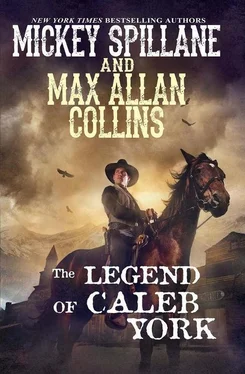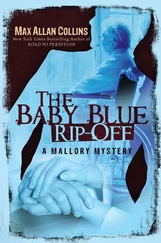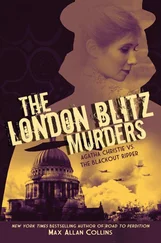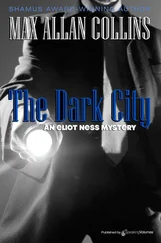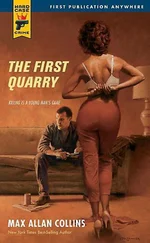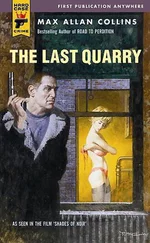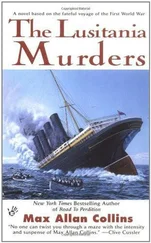“My father,” she said, “has gone off to try to stop Harry Gauge himself.”
His name was Caleb York.
He had come to Trinidad by happenstance, on his meandering way to California, where in San Diego the Pinkerton people were holding a position for him.
Well, “holding” was too strong a word — more like an open invitation, based upon his days as a Wells Fargo detective, during which time he’d made a certain reputation. As a sleuth, yes, but more so as a shootist.
That latter reputation had become a burden in some respects — particularly when crazy gunhands, young mostly, tried to make their own name by killing him. Pushing forty, he was getting old for the game, and when a shotgun-mangled body had been misidentified as him in Silver City, he had done nothing to correct the impression. He was fine with letting his “killer,” Wes Banion — whom he’d never met other than by bad reputation — bask in the glory of being the man who gunned down Caleb York.
A few people he cared about — such as his highly placed pal with the Pinkertons, and a few relations — knew the story was false. Knew that Caleb York was alive and well, just not bragging about it. He had shaved his mustache, and taken to wearing nicer clothing than he’d ever allowed himself. Sure, people called him a “dude,” but nobody bothered with drawing down on a dude.
At least not till Trinidad, New Mexico.
Before arriving in Sheriff Harry Gauge’s town, he’d been enjoying his status as a “dead” man, despite an awareness that after his “death,” his legend only grew. But ever since he’d ridden into this fear-choked town, he’d been dealing with people who either wanted to know more about him than he cared to share, or flat out wanted him truly dead.
He knew it didn’t help that he never used some other name, something common like Smith or Jones. But to him an alias was something for bad men to hide behind.
And Caleb York, however many bad men he might have gunned down in his day, did not view himself as a bad man.
In part, that simple reluctance to admit who he was, and that Caleb York still breathed, had brought him to this fateful hilltop where he bent beside a dance-hall queen who’d decked herself out in riding clothes and come looking for him. Kneeling next to him, she looked down with him upon the Brentwood Junction relay station, a stopover for stages to take on fresh horses and give thirsty passengers an opportunity for the wetting of whistles.
The woman he knew only as Lola — she had never given him a last name (but then he had never given her a name at all, so who was he to judge?). They’d had the kind of relations a man had with a woman who worked in a saloon. He’d paid her nothing but felt something — something for her as a woman who in a kinder world might have known a much better life.
She had caught up with him on the road — he’d come mostly overland, cutting over within two miles of the relay station — to warn him of what he was facing. She led him back over rough country to this hill where they had a good view of the small cluster of shabby weathered-gray structures — barn with stable wings, corral where half-a-dozen horses roamed, relay-station main building itself. Near the latter, two horses hitched to a buggy were tied up out front. On the ground between the corral and the relay station lay the crumpled form of a man, almost certainly dead.
York was using binoculars. “I count three on guard. One at the barn, another at the corral, another roaming. I think the dead man is one of Gauge’s.”
“Let me see.”
He handed her the glasses and she looked. “Yes. His name is Watters. No great loss. But that buggy — it’s Old Man Cullen’s.”
“I know.”
She handed the glasses back. “You can bet Gauge is inside, and Rhomer, too, plus another three or four. That’s six or seven men, stranger. Too many.”
“It’s always like that.”
She touched his shoulder and he looked at her looking at him.
“You can’t just ride into an armed camp,” she said sternly. “And that’s just what you would’ve done if I hadn’t caught up with you first.”
He gave her something close to a smile. “I know. Thanks. Tell me — why did you bother warning me?”
She rolled the dark, pretty eyes. “Let’s say Harry Gauge and I fell out. See where it’s red near my ear? And you saw firsthand how there’s no love lost between Vint Rhomer and me.”
“That the only reason?”
Her smile seemed sweet and wicked at once. “Maybe I’ll tell you someday.”
“Something to look forward to.”
She nodded toward the relay station. “What’s your plan?”
He gazed down there. “Take out those watchdogs, one by one.”
She frowned at him. “You start shooting and guns will come streaming out of that main building, firing back. Or cut you down from the windows.”
He shook his head. “No shooting. I have a Bowie knife in my saddlebag.”
The lush lips worked up a smirk. “You don’t hardly seem like the type to kill a man with a blade.”
He grinned at her. “Yeah? And what was a nice girl like you doin’ working in the Victory?”
She smiled wider, moving her beauty mark up. “Fair point. But you might still attract attention. I have a better idea. First I’ll go down there. Ride in and see what they’re up to.”
He was already shaking his head. “That’s a terrible notion. They might well figure you headed out this way to warn me or, worse, the Cullens. What about falling out with Gauge?”
“Oh, I can still talk my way in. I’ll just say Harry made me mad when he hit me, and I rode off, like women in a tizzy are known to.” Her tone was arch now. “And how now I’m rushing to his side to make it up to him.”
“He won’t buy it, Lola.”
Now she looked away from him. “That isn’t all I’m going to tell him. He doesn’t know about Rhomer the other night. How Vint tried to take me, and roughed me up trying.”
“But if you and Gauge are really over...”
She shook her head. “Harry doesn’t like anybody moving in on his property... even if it’s ‘property’ he’s grown tired of.”
“And, you’ll what? Get them to fighting?”
She shrugged. “Well, there isn’t any other way, is there? If they’re distracted inside, you can do what you need to outside. It won’t be long before that stage arrives, and then where will you be?”
“No. Lola, no...”
She got up and scurried toward the little nearby cluster of bushes where they’d left their two horses. He followed her, protesting, but she kept batting it away.
“When you see me go in there,” she said, ready to place boot in stirrup and mount, “you can make your move.”
“You don’t need to do this.”
A lovely smile blossomed. “What, and stay up here and watch you go to work with a knife? Don’t you know I’m squeamish?”
She kissed him on the mouth lightly, turning toward her horse, and he swung her around by the arms and returned the kiss, only harder, with the kind of passion they’d briefly ignited the one afternoon they’d spent together.
Then they stood near each other, catching their breath.
Finally she said, “Thanks, stranger.” Something melancholy swam in her eyes. “Even though I know who your kisses really are for. But maybe she won’t miss just that one.”
And she mounted and rode off.
Back on the rutted road to Brentwood Junction — as the juncture of this and the one to Las Vegas was called — Lola passed by a hill from behind which a figure on horseback rode out to fall in alongside her.
Gauge’s man Cole Colton, in his oversized sugar-loaf sombrero, gave her a sideways glance and a lazy, thin-mustached grin. “Afternoon, Lola.”
Читать дальше
